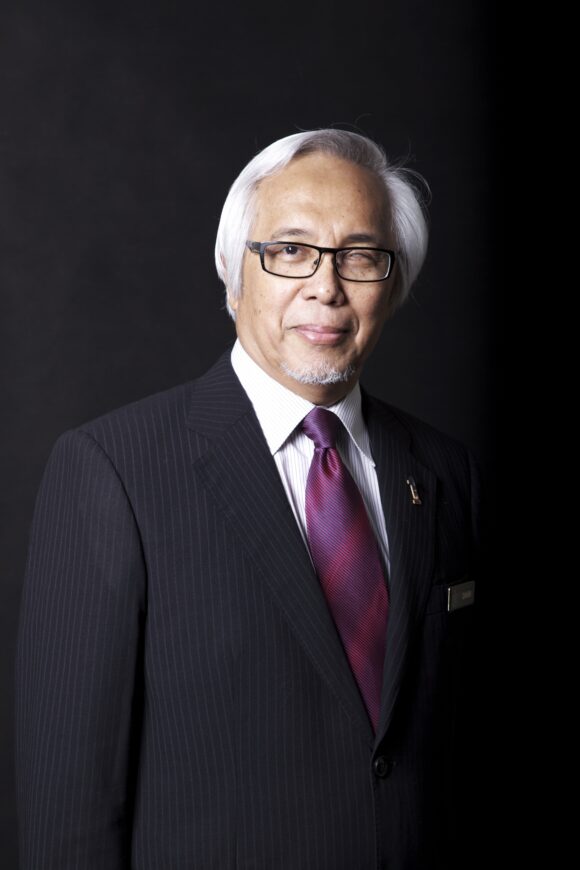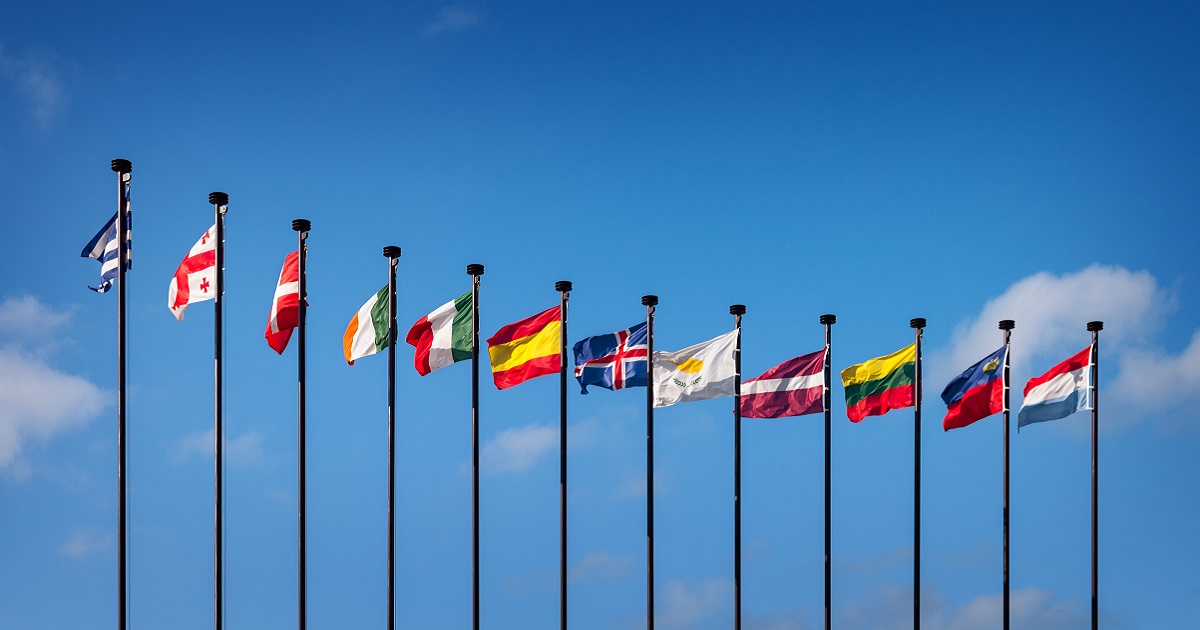Global Cooperation for a Sustainable Future
Scientist and educator, Tan Sri Dr Zakri Abdul Hamid, discusses on ways to strengthen international cooperation on sustainability issues and how to promote a multilateral approach to global governance. This article was first published in In Focus issue 13.
Key challenges in promoting a multilateral approach to global governance for sustainability, and ways to effectively address these challenges:
The global community was aware of the need to be equitable and fair as far back as 1992, when the Earth Summit was held in Rio de Janeiro. The principle of Common but Differentiated Responsibilities and Respective Capabilities (CBDR-RC) – a landmark principle of international environmental law – reflects equity concerns in a world marked by high inequalities in levels of human development and environmental resilience. It addresses the different capabilities and differing responsibilities of individual countries in addressing global challenges such as climate change and biodiversity loss.
In promoting a multilateral approach, one must take note that we need a level playing field and that is quite impossible to achieve. Take the case of climate change. Human activities from the burning of fossil fuels such as coal, oil and gas release greenhouse gases (GHG) such as CO2, which has caused the temperature of Earth’s atmosphere to rise to levels that cannot be explained by natural causes, scientists say.
Historically, global warming started in industrialised countries, known as Global North, since the dawn of industrialisation. The major carbon emitters have been the developed countries, only recently joined by countries like China and India. Smaller developing countries in the Global South contributing the least GHG, bear the brunt of the impacts of climate change. According to International Rescue Committee, these include Somalia which experienced drought and extreme food insecurity, Congo, Yemen, Chad and South Sudan.
Combating climate change is not a cheap affair. A report commissioned by Britain and Egypt released at COP27 of the UNFCCC said that developing countries alone need a combined USD1 trillion a year in external funding to meet the goals set out in their Nationally Determined Contributions (NDCs). This funding is over and above their countries’ own expenditure and is needed for things like cutting emissions, dealing with disasters and restoring nature.
Malaysia’s share of global GHG is a mere 0.80 per cent, compared to the United States at 14 per cent, China at 32 per cent and India at eight per cent. Malaysia’s December 2021 flood, partly attributed to climate change, resulted in damages amounting to USD1.3 billion, 50 dead and 40,000 people displaced. In Pakistan, the massive floods of 2022 affected at least 33 million people and killed 1,739 and caused USD14.9 billion of damage and USD15.2 billion of economic losses. The causes of the floods were monsoon rains and melting glaciers arising from a severe heat wave, both of which are linked to climate change.
Africa is responsible for only three per cent of the emissions that humans have ever put into the atmosphere, but the continent is suffering from multi-year droughts that affect food production and well-being of wildlife. It’s quite standard practice during COP meetings for developing countries to request the developed countries to pay for consequences of their emissions. Africa alone reckons that they need USD277 billion annually to meet their NDCs. In 2019 and 2020, they received less than USD30 billion annually. Where will the funds come from? This has remained unanswered.
Countries can effectively collaborate to address global sustainability challenges like climate change and biodiversity conservation, only if:
First and foremost, we must build understanding and knowledge about the importance of climate change and biodiversity conservation. This shouldn’t be confined to just academic knowledge but must emphasise negative impacts of these twin problems to every man on the street.
For example, consider the incidence of the 2021 big flood in Malaysia – victims or the public, must be told that the floods were triggered by global warming and each citizen must reflect on what we can do to mitigate and adapt to climate change by initiating some actions. These actions can be as simple as separating one’s domestic waste into organic and non-organic, being efficient in our electricity usage and to use water in a judicious manner. One must also be taught to respect the environment such as the role of tree planting in increasing our carbon sink.
This civic consciousness could then be articulated with policymakers and political leaders at national level so that relevant laws can be revised, or new ones enacted, to ensure we walk the talk on sustainability.
Eventually, we should be talking to our neighbours – in this case, members of ASEAN, so that we strengthen our common positions, build new ones and develop programmes as well as strategies to promote sustainable development in the region. International organisations like WIEF Foundation should be leveraged to advance the cause on sustainability, in particular on climate change, conservation and sustainable use of biodiversity.
Sustainability is not just about the environment but also job creation, income generation, economic prosperity and a healthy state of existence.
Strategies recommended to foster greater international cooperation on sustainability issues while accommodating different national contexts:
To begin with, there’s already a high degree of understanding of sustainability issues at the international level. The milestone event could be the 1972 UN Conference on Human Development in Stockholm. It was the first major conference to make the environment a major issue. It also gave birth to United Nations Environment Programme. 20 years later, the UN convened the Earth Summit in Rio de Janeiro to discuss the linked problems of environmental degradation and sustainable development. It was attended by 180 heads of governments and launched Agenda 21, a blueprint to implement sustainable development in the 21st century at all levels – local, national, regional and global. Two international treaties were signed in Rio, namely the UNFCCC and the UN Convention on Biological Diversity.
UNFCCC’s Kyoto Protocol, adopted in 1997, commit industrialised countries to limit and reduce GHG emissions in accordance with agreed individual targets and places a heavier burden on them under the CBDR-RC principle.
In 2015, UN member states adopted the Paris Agreement which aspire to keep the rise in mean global temperature to well below two degrees Celsius above pre-industrial levels, and preferably limit the increase to 1.5 degrees Celsius, acknowledging that this would substantially reduce the effects of climate change. In the same year, world leaders meeting in New York agreed to adopt the 2030 Development Agenda with its 17 SDGs calling an end to poverty, protect the planet and ensure that by 2030 all people enjoy peace and prosperity.
After more than 30 years of trying to halt biodiversity loss, in 2022, the international community achieved a landmark decision by agreeing to the Kunming-Montreal Global Biodiversity Framework in Montreal. It sets out an ambitious pathway to reach the global vision of a world living in harmony with nature by 2050 and to ensure that biodiversity loss is halted.
From the foregoing, it’s obvious that the international community has spent considerable time and effort to plan, initiate and carry out numerous programmes to improve the human condition as well as to protect the planet for future generations. However, the outcomes are still sketchy in many places. The science of climate change and biodiversity is very sure of our predicament. For instance, the Intergovernmental Panel on Climate Change has recently warned that the world is likely to surpass its most ambitious climate target, limiting warming to 1.5 degrees Celsius above preindustrial temperatures, by early 2030s. Beyond that threshold, scientists have found climate disasters will become so extreme that people will not be able to adapt.
In 2019, the Intergovernmental Platform on Biodiversity and Ecosystem Services declared that up to one million species of animals and plants are under threat of extinction due to unsustainable human activities.
Since the challenges are multidisciplinary and multisectoral in nature, international collaboration – multilateralism – is the only way forward. Each national leader must demonstrate their political will to strengthen this cooperation. Each must also commit to set their house in order – policies and programmes at local and national levels with accompanying national budgets. Furthermore, leaders of industrialised countries must commit new and additional funding to assist developing countries in mitigating as well as adapting to climate change and to steadfastly halt biodiversity loss.
Envisioning the role of regional and global partnerships in strengthening international cooperation on sustainability issues:
As someone who worked in the UN for several years, I can speak with some confidence that the current structure is quite adept in managing sustainability issues faced by the global community today. Its two main organs, UNDP and UNEP, are coordinating well. The establishment of the UN Environment Assembly in 2012 signals a new era of putting the environment on the same par as peace, poverty, health and security.
Also, there are many on-going international cooperation on sustainable issues. The plethora of UN conferences described earlier is one of them which eventually translate into various cooperative programmes between UN agencies and governments at national or regional levels. At regional level, the 2015 ASEAN Charter sets out that ASEAN is committed to ensuring ‘sustainable development for the benefit of present and future generations and to place the well-being, livelihood and welfare of the peoples at the centre of ASEAN community building process’.
There’s also ASEAN Community Vision 2025 which emphasises a regional focus on environmental protection for now and the future, adapting and responding to climate change, as well as green technology and development. However, despite these lofty declarations, the most recent review of progress by the UN suggested that none of ASEAN member states are on track to meet any of the 17 SDGs by 2030.
Last Words
No one nation, however powerful and rich, can solve the problems of climate change, biodiversity loss or microplastic pollution on its own. They need an international collaborative structure. Furthermore, the issues are underpinned by science. Scientific advancement is part of the problem, but it is also part of the answer. The scientific community hold the knowledge, but to make that knowledge relevant and useful, it must be articulated effectively to policymakers and political leaders.
This is a new realm of pursuit known as ‘science-policy nexus’. It is to promote a two-way dialogue between scientists and politicians with the hope that the latter can be equipped with science-based advice and eventually be able to formulate better policies as well as legislation. The international cooperation that ensues is embodied in ‘science diplomacy’, an area that promotes dialogue and interaction among multilateral stakeholders, in particular, countries.
Centres of excellence in science diplomacy are actively being created in the Global North. None has been established in developing countries. In an unprecedented move, the International Institute of Science Diplomacy and Sustainability was recently officiated at UCSI University by Malaysia’s Minister of Foreign Affairs in Kuala Lumpur.
Science, technology and innovation can play a pivotal role in achieving the 17 SDGs. This is also an area where North-South cooperation can be fully utilised. It need not be a one-way street. Technology-rich countries can lend their expertise and skills to countries of Global South. However, gene-rich developing countries, many of whom are mega-diverse in biodiversity, can offer raw materials which can be developed jointly through R&D to produce new products for the world market.
Ours is the last generation that can impart positive change via enhanced international cooperation on climate change and biodiversity conservation. Do not walk away.

About the Author
Tan Sri Dr Zakri Abdul Hamid is a scientist and educator at Universiti Teknologi Petronas in Malaysia. He is a distinguished professor and founding director of International Institute of Science Diplomacy and Sustainability of UCSI University in Kuala Lumpur. He was a science advisor to UN Secretary-General Ban Ki-moon and director of Institute of Advanced Studies at United Nations University.
Tan Sri Dr Zakri will be speaking at the 14th WIEF in Abu Dhabi. The forum will be on 6 – 8 February 2024. Register today to join its programme of multiple plenary sessions, masterclasses and networking opportunities.
Main photo from Unsplash.

